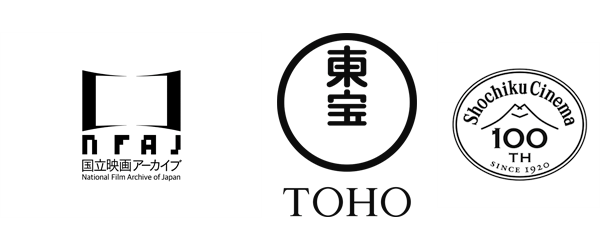Only 36 of Ozu’s 54 films survive to this day. He made the bulk of the lost titles, including his debut and only period drama, The Sword of Penitence (1927), during the silent era. His early ‘nonsense films’ and college comedies in particular betray the strong influence of Hollywood pioneers like Ernst Lubitsch, Charlie Chaplin and Harold Lloyd, while reflecting the economic and social realities of a rapidly urbanising 1930s Japan through its landscapes and domestic spaces.
I Was Born, But… – a major survivor from this era – is a witty take on the class system and features two young brothers newly arrived in the suburbs, where their father has been transferred, who are forced to play hooky after being hounded by the local rough kids. After witnessing their dad making a prat of himself in his boss’ home movies, screened in front of his work colleagues and their families, the humiliated pair go on hunger strike. The event clearly undermines their father’s credo that hard work earns prestige.
This charming film demonstrates Ozu’s wonderful handling of child performers and was his first to be voted the best of its year by Japan’s leading film magazine, Kinema Junpo.
Jasper Sharp, bfi.org.uk
Although the first successful Japanese talkie was made in 1931, conversion to the new was by no means immediate. For the following three years, the nation’s highest film award, the annual Kinema Jumpo Best One prize, went to a trio of silent pictures all directed by the same man: Yasujiro Ozu. The director has explained his reluctance to make the change: ‘With everyone everywhere rushing into sound, I wanted to stage a last-ditch struggle for the silent film. I knew talkies would win when it was all over, but I wanted to hold off until the end so as to show how good silent films could be.’
I Was Born, But…, the Kinema Jumpo Best One for 1932, shows the degree of Ozu’s success. Without qualification, this film belongs to the great silent comedy tradition, but its approach is very different from that of most well-known Western artists of the period. Ozu took his humour from everyday life, untouched by a comic’s hands; his films were built not around the antics of a comedian but out of the unconscious comedy of ordinary people.
J. L. Anderson, ‘Seven from the Past: Aspects of the Pre-war Japanese Cinema’, Sight and Sound, Autumn 1957
During the home movie projection which marks the critical turning point in I Was Born, But… from comedy to tragedy, and shortly before Yoshii’s antics appear on the inner screen, Ryoichi and Keiji break into a debate about the zebra they see – does it have black stripes on white, or white stripes on black? – creating a disturbance that momentarily halts the screening. In comparable fashion, a spurious, distracting and no less innocent debate has been persisting for years about Ozu: is he a realist or a formalist? The naivete of such a question (and the related fallacy that ‘realism’ and ‘stylisation’ are somehow alternative choices) has effectively blinded many to Ozu’s genius, as well as Tati’s: whether uncritically embraced for their ‘simple’ humanism or dismissed for their ‘cold’, ‘boring’ or elusive’ formalism, the brilliance of both is lost on a one-eyed public that wants to keep its pleasure simple.
If a demonstration is needed that cinematic and social forms are so interrelated for Ozu that they become indistinguishable, I Was Born, But… is there to supply it – along with strong counter-evidence to the charge that his total absorption in the commonplaces of middle-class suburbia reflects a reactionary endorsement of its principal values. Because the society that Ozu depicts is essentially bound up in formality, it naturally follows that his sense of this society’s boundaries and limitations is intimately related to its ritual social gestures: Ohayo (Good Morning), his 1959 ‘remake’, pivots around the boys’ questioning of why people say ‘Good morning’ to one another. And even more clearly in this 1932 silent version, Ozu is implicitly offering a radical critique of prevailing social as well as cinematic forms, although the boundaries of his world – like those of Oshima’s in Boy – ultimately make it a tragic vision.
Learning to master their immediate social environment by establishing their power to humiliate others, Ryoichi and Keiji are brought to the chilling realisation that their father’s power – which hangs over and determines their very existence – is based on his capacity to be humiliated. Every formal aspect of the film expresses the equivalence of and continuity between the separate worlds inhabited by Yoshii and his sons: two lateral tracking shots in opposite directions across a line of schoolboys marched through drills is followed by another one proceeding back and forth across desks of yawning employees in Yoshii’s office, with teacher and boss playing comparable roles in the compositions. Low-angle shots from the boys’ eye level are intercut with higher shots favouring Yoshii as he lectures them (while undressing) on getting high marks; this ‘authoritarian’ view is undercut and counterpointed by a less heroic shot of his ungainly socks as seen by his sons. The routes to work and school partially coincide as he walks with them beside railroad tracks to the crossing (a path traversed many times in the film), where he departs in his boss’ sedan and the kids (including Taro) join the others. The field crossed on the latter’s route is where the boys do their schoolwork when playing hookey, and parallel tracking shots link the two there with the arrival of the delivery boy, from whom they ask help in forging their high marks – an emissary between their world and their parents’ who later protects them against the local bully in ‘exchange’ for the news that their mother will order beer because it’s Father’s payday. And this same bully, moreover, is glimpsed running ahead of his schoolmates in the film’s penultimate shot, going out of his way to greet his teacher a second time.
Indeed, if the climactic family crisis registers with an explosive force – Ryoichi screaming ‘I’m not afraid of you. You’re a nothing, you’re a nobody,’ and getting brutally spanked after further violence, followed by Yoshii telling his wife ‘I give up’, and taking out his liquor bottle – this is partially because everything preceding it has led to this awful impasse. The extraordinary unity of Ozu’s conception lends relevance and resonance to every fleeting detail, so that neither the above synopsis nor any abbreviated charting of relationships can begin to describe the film’s richness, or the potential impact of its theme. Writing in Moviegoer, James Stoller remarked that ‘it invites comparisons to Vigo, but has charm and physical grace and density that eluded the Frenchman; it surpasses Vigo’s schoolboy anarchy with its sad, Olympian intimations not only of the spirit but of the closing in of the culture upon it, of the absolute necessity of compromise and the denial of animal will.’
Jonathan Rosenbaum, Monthly Film Bulletin, March 1975
I WAS BORN, BUT…
(OTONA NO MIRU EHON – UMARETE WA MITA KEREDO)
Director: Yasujiro Ozu
©: Shochiku Co. Ltd.
Production Company: Shochiku Co. Ltd.
Assistant Directors: Kenkichi Hara, Akira Kiyosuke
Screenplay: Akira Fushimi
Screenplay Collaborator: Geibei Ibusuya
Based on an idea by: James Maki
Director of Photography: Hideo Mohara
Lighting: Toshimitsu Nakajimav
Camera Assistants: Yuharu Atsuta, Masao Irie
Editor: Hideo Mohara
Art Director: Takeshi Kawano
Set Designers: Takejiro Tsunoda, Yoshiro Kimurav
Set Decorators: Shintarô Mimura, Tsunetaro Inoue
Studio: Shochiku Kamata
Cast
Tatsuo Saitô (Yoshii)
Mitsuko Yoshikawa (Yoshii’s wife)
Hideo Sugawara (Ryoichi, Yoshii’s elder son)
Kozo Tokkan (Keiji, Yoshii’s younger son)
Takeshi Sakamoto (Iwasaki, Yoshii’s boss)
Teruyo Hayami (Iwasaki’s wife)
Seiichi Kato (Taro, Iwasaki’s son)
Shoichi Kofujita (delivery boy)
Seiji Nishimura (schoolmaster)
Zentaro Ijima, Shojaro Fujimatsu, Masao Hayama, Michiyo Sato Kuniyasu, Hayashi, Akio Nomura, Teruaki Ishiwatari
Chishu Ryu (projectionist) *
Japan 1932©
90 mins
*Uncredited
With Ed Hughes and New Music Ensemble score (Sat 23 Oct)
With live musical accompaniment by Meg Morley (Sun 28 Nov)
Introduction by Bryony Dixon, BFI National Archive curator (Sun 28 Nov)
Supported by

In partnership wtih

With special thanks to

With the kind support of:
Janus Films/The Criterion Collection, Kadokawa Corporation, Kawakita Memorial Film Institute, Kokusai Hoei Co. Ltd, Nikkatsu Corporation, Toei Co. Ltd
BFI SOUTHBANK
Welcome to the home of great film and TV, with three cinemas and a studio, a world-class library, regular exhibitions and a pioneering Mediatheque with 1000s of free titles for you to explore. Browse special-edition merchandise in the BFI Shop.We're also pleased to offer you a unique new space, the BFI Riverfront – with unrivalled riverside views of Waterloo Bridge and beyond, a delicious seasonal menu, plus a stylish balcony bar for cocktails or special events. Come and enjoy a pre-cinema dinner or a drink on the balcony as the sun goes down.
BECOME A BFI MEMBER
Enjoy a great package of film benefits including priority booking at BFI Southbank and BFI Festivals. Join today at bfi.org.uk/join
BFI PLAYER
We are always open online on BFI Player where you can watch the best new, cult & classic cinema on demand. Showcasing hand-picked landmark British and independent titles, films are available to watch in three distinct ways: Subscription, Rentals & Free to view.
See something different today on player.bfi.org.uk
Join the BFI mailing list for regular programme updates. Not yet registered? Create a new account at www.bfi.org.uk/signup
Programme notes and credits compiled by the BFI Documentation Unit
Notes may be edited or abridged
Questions/comments? Contact the Programme Notes team by email

